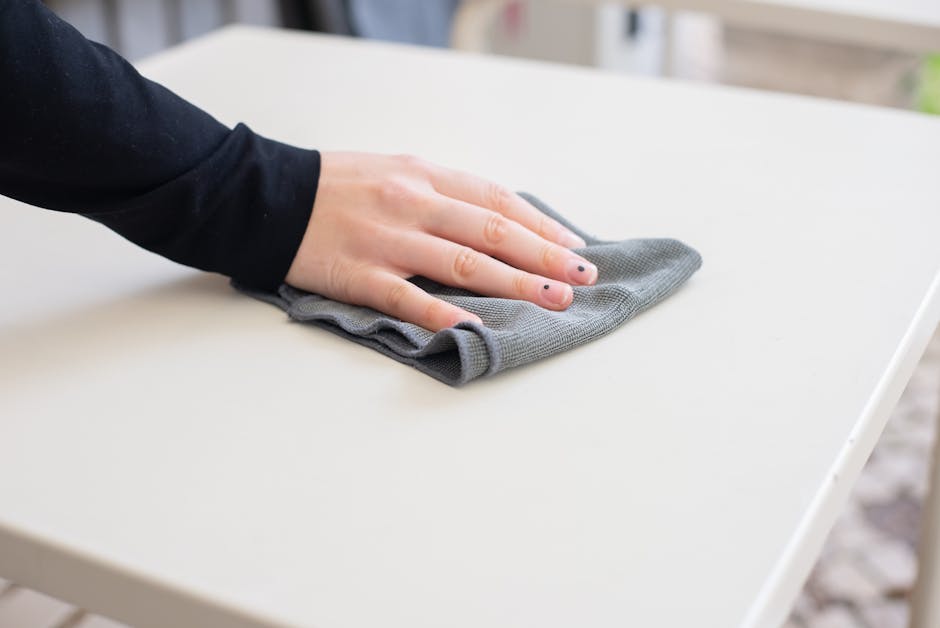Worker welfare for cleaner
Furthermore, Bahrain has specific labor laws designed to protect all workers. These regulations cover contracts, working hours, and end-of-service benefits. Additionally, international standards provide further guidance for best practices. Understanding these frameworks is the first step. Implementing robust worker welfare for cleaning personnel ensures legal compliance and operational excellence.
This guide explores the comprehensive benefits of a welfare-focused approach. It provides actionable strategies for implementation. We will cover best practices from recruitment to retention. The goal is to create a sustainable and respectful work environment. Ultimately, this leads to a more professional and effective cleaning sector in Bahrain.
Understanding Worker Welfare for Cleaner
Worker welfare for cleaner staff encompasses all aspects of their employment. It goes beyond just paying a salary. This includes safe working conditions, fair treatment, and access to benefits. It also involves respect, dignity, and opportunities for feedback. A holistic view is crucial for success.
Specifically, welfare covers physical and mental health. It includes proper safety equipment and training. Furthermore, it involves reasonable working hours and rest periods. Access to clean water and sanitary facilities is also fundamental. These elements form the foundation of a decent work environment.
Bahrain’s Labour Law (Law No. 36 of 2012) sets the minimum standards. Employers must adhere to these regulations. For example, the law mandates provisions for overtime pay and leave. However, leading companies often exceed these minimum requirements. They recognize that superior welfare leads to superior performance.
Worker Welfare for Cleaner Benefits
Investing in employee welfare for cleaning staff yields multiple advantages. The most immediate benefit is improved staff retention. High turnover is a major cost for cleaning companies. Reducing it saves significant recruitment and training expenses. Therefore, a stable workforce is more experienced and efficient.
Additionally, worker morale and productivity see a direct boost. Employees who feel valued work harder and more carefully. This leads to higher quality cleaning services for clients. Consequently, client satisfaction increases, enhancing the company’s reputation. A positive reputation helps in securing new contracts.
Moreover, a focus on welfare reduces workplace accidents. Proper training and equipment prevent injuries and illnesses. This lowers costs related to absenteeism and insurance claims. It also demonstrates a commitment to corporate social responsibility. For more insights, refer to International Labour Organization guidelines.
How Worker Welfare for Cleaner Works
Implementing a welfare program requires a structured approach. First, conduct an audit of current practices. Identify gaps between existing conditions and desired standards. This assessment should involve direct feedback from the cleaners themselves. Their input is invaluable for creating effective solutions.
Next, develop a clear welfare policy document. This document should outline all rights and benefits. It must cover health and safety protocols, grievance procedures, and career development paths. Communication is key. Ensure every employee understands the policy through training sessions.
Then, establish a system for monitoring and evaluation. Regularly check that standards are being met on the ground. Use tools like surveys and site inspections. This continuous improvement cycle ensures the program remains effective. For broader economic context, the World Bank economic reports offer useful data.
Best Worker Welfare for Cleaner Practices
Several best practices define top-tier welfare programs. First, provide comprehensive onboarding and continuous training. This includes instruction on chemical safety and equipment use. It also covers soft skills and client interaction. Well-trained staff are confident and competent.
Second, ensure fair and transparent wage structures. Wages should be paid on time and comply with legal minimums. Consider offering performance-based incentives. Additionally, provide all legally mandated benefits like annual leave and end-of-service gratuity. Transparency builds trust between employer and employee.
Third, prioritize health and safety above all else. Supply personal protective equipment (PPE) like gloves and masks. Implement protocols for handling hazardous materials. Furthermore, promote mental well-being by preventing harassment and offering support. The World Health Organization workplace standards provide excellent guidance.
Worker Welfare for Cleaner Implementation
Successful implementation starts with leadership commitment. Management must champion the welfare initiative. Allocate a dedicated budget for welfare-related expenses. This includes costs for training, equipment, and potential wage increases. A clear financial plan is essential for sustainability.
Additionally, appoint welfare officers or a committee. These individuals will be responsible for the program’s day-to-day management. They will handle employee concerns and ensure policy adherence. This creates a direct channel for communication. It shows employees that their well-being is a priority.
Finally, integrate welfare metrics into performance reviews. Measure success through reduced turnover rates and higher client satisfaction scores. Celebrate achievements to maintain momentum. For professional support, consider our professional resources.
Advanced Worker Welfare for Cleaner Strategies
For companies aiming to be industry leaders, advanced strategies are key. One strategy is offering skill development programs. Train cleaners for supervisory roles or specialized cleaning techniques. This provides a clear career path and increases loyalty. Investing in people pays long-term dividends.
Another strategy is implementing digital tools. Use mobile apps for shift scheduling and communication. This improves efficiency and allows for real-time feedback. Digital platforms can also facilitate training and grievance reporting. Technology enhances transparency and accessibility.
Moreover, consider creating a recognition and rewards system. Publicly acknowledge employees for excellent work or long service. Small rewards can significantly boost morale. This fosters a positive company culture. Understanding regional norms is easier with UAE government employment regulations as a reference.
Worker Welfare for Cleaner Success Tips
Achieving success requires consistency and adaptability. First, communicate openly and frequently with your team. Hold regular meetings to discuss challenges and ideas. Listen actively to their feedback and act on it. This collaborative approach builds a strong, cohesive team.
Second, lead with empathy and respect. Recognize that cleaners are individuals with unique needs and aspirations. Treat them with the same dignity you would expect. A respectful workplace is a productive workplace. This principle is the core of effective welfare.
Finally, stay informed about changes in labor laws and best practices. Regulations can evolve, and new standards emerge. Continuous learning ensures your program remains compliant and competitive. For international trade perspectives, review U.S. Department of Commerce trade information.
Future of Worker Welfare for Cleaner
The future of welfare in Bahrain’s cleaning sector is promising. There is growing awareness about ethical employment practices. Clients are increasingly favoring contractors who demonstrate social responsibility. This market shift will reward companies that invest in their people.
Technological advancements will also shape welfare programs. Automation may handle some repetitive tasks. This could allow cleaners to focus on more skilled, higher-value work. Consequently, the profession may become more attractive to a wider talent pool. Upskilling will be crucial for this transition.
Ultimately, the trend is towards greater professionalization of the cleaning industry. Worker welfare will be a central pillar of this evolution. Companies that embrace this change early will gain a significant competitive advantage. They will be seen as employers of choice.
Frequently Asked Questions
What are the legal requirements for worker welfare for cleaners in Bahrain?
Bahrain’s Labour Law mandates key requirements. These include a written contract, timely wage payment, and maximum working hours. It also covers overtime compensation, annual leave, and end-of-service benefits. Employers must provide a safe work environment. Adhering to these is the baseline for worker welfare for cleaning staff.
How can I improve morale among my cleaning team?
Improving morale starts with recognition and fair treatment. Provide clear communication and listen to their concerns. Offer regular training and opportunities for advancement. Small incentives and celebrating achievements also help. A respectful and inclusive culture is fundamental for high morale.
What is the business case for investing in worker welfare?
The business case is strong. Better welfare reduces employee turnover, saving recruitment costs. It increases productivity and service quality, leading to happier clients. It also minimizes accidents and associated costs. Ultimately, it enhances your company’s reputation and competitiveness.
How do I handle a grievance from a cleaner?
Establish a clear, confidential grievance procedure. Listen to the employee without judgment. Investigate the matter promptly and fairly. Take appropriate corrective action and communicate the outcome. A fair process builds trust and prevents minor issues from escalating.
Are there certifications for ethical labor practices in Bahrain?
While Bahrain-specific certifications may be limited, international standards exist. Companies can align with ILO conventions or ISO standards related to social responsibility. Demonstrating compliance with local law and international best practices can serve as a powerful marker of ethical commitment.
Where can I get help implementing a welfare program?
Professional HR consultancies like ours specialize in this area. We offer professional resources and can provide a tailored expert consultation. You can also schedule appointment to discuss your specific needs and develop a robust implementation plan.
Conclusion
Prioritizing worker welfare for cleaner employees is an essential strategy in Bahrain. It aligns ethical responsibility with sound business logic. A well-treated workforce is more stable, productive, and loyal. This directly translates into higher service quality and client satisfaction.
The journey requires commitment, but the path is clear. Start by understanding legal frameworks and best practices. Then, implement a structured welfare program with clear policies. Continuously monitor and improve your approach. The rewards will be evident in your operational performance and company reputation.
Now is the time to act. Elevate your standards and invest in your most valuable asset: your people. Begin by assessing your current practices and identifying areas for improvement. For personalized guidance, reach out for an expert consultation. Build a brighter future for your business and your employees.




